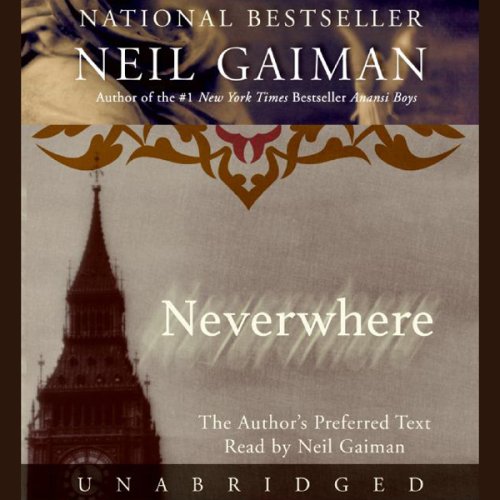Listen to this episode of the Focus with Marlene Podcast
Get caught up with all episodes in the “Threads of Life” series
In London’s underground stations you hear a mechanized voice say, “Mind the Gap,” as you prepare to board a tube train. That “gap” between platform and train is usually quite small and as a tourist, after the novelty wears off, you take for granted the need to watch your step and the recording simply becomes one of those endearing facets of the London experience.
 Neil Gaiman, in his book, Neverwhere, artfully creates a more sinister reason for “minding the gap” in his fantasy story about London above ground and the London below.
Neil Gaiman, in his book, Neverwhere, artfully creates a more sinister reason for “minding the gap” in his fantasy story about London above ground and the London below.
The “gap” no longer is a small precautionary hazard but one of lethal danger as an invisible cloudlike “black smoke” rises out of the crack, wrapping around the ankles of its targeted, unwary traveler, ready to drag him into oblivion.
It is easy to develop complacency about the gaps that occur in our lives, most of which are simply little daily obstacles we step over. But sometimes, those gaps can take on the proportions of huge chasms, larger than life and so threatening that we remain rooted in place and stranded on the station platform while the train moves out.
The “gap” becomes an insurmountable obstacle; a hollow place empty of inspiration and motivation; a place that threatens to swallow us up in mediocrity and depression.
What creates the difference between a small gap we easily step over and one that literally sucks out our confidence and energy?
Usually, it is our interpretation.
Cognitive-behavioral therapy teaches us to challenge our thoughts and beliefs in order to change the emotional and behavioral responses that follow. When you feel overwhelmed, find and challenge the connecting thread to the thoughts and beliefs attached. Often you will find patterns of thinking that prevent you from believing you can make it.
Maybe it is the “all or nothing” thinking that locks you into an “either/or” way of looking at the world; inflexible and rigid.
Maybe you have over-generalized the situation, so the obstacle becomes too large and any efforts on your part are measured by past unsuccessful attempts. Therefore, to try is useless because you just know you will fail.
Distorted beliefs about one’s worth filter out any positive attributes, exaggerating failures while minimizing any accomplishments. The future becomes hopeless. As possibilities and opportunities are filtered out, we no longer see a minor gap, but an impossible impediment ready to swallow us up. Our interpretations of the past are used to predict the future.
We can choose to hold onto unrealistic expectations about ourselves and the world or decide to try again, looking for alternatives to make our dreams happen.
We can empower our thinking or believe we are a failure – a powerless victim.
We choose our locus of control. We have the ability to choose our thoughts and beliefs and their subsequent emotional responses.
We can choose to accept setbacks and seemingly impossible obstacles and then explore other options. We are not the center of the universe. We cannot predict the future, but we can make choices. We can give ourselves grace to fail and start over again.
Without challenging our thoughts and beliefs, our feelings will produce reactionary behaviors. If we believe it is impossible, it becomes impossible. But we can accept the fact that as humans we will fail.
Perfection is an ideal that can keep us spinning our wheels. Wanting to do our best points us to a multitude of choices to make things happen.

